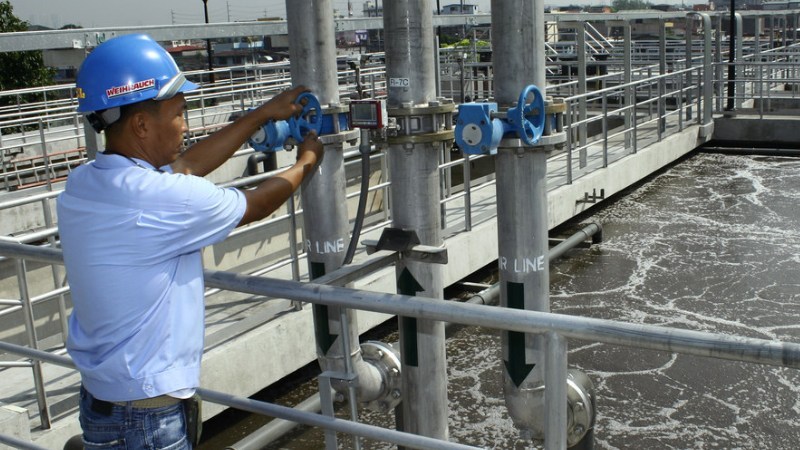When you were at school, you probably learned that the water you drink today is the same water the dinosaurs waded through.
And it’s true: the tiny proportion of H2O that isn’t saline, locked underground or frozen, has been recycled since time immemorial.
65 million years ago, the dinosaurs were living in harmony with their surroundings when they were suddenly wiped out by forces beyond their control.
In 2019, human beings face an existential threat of their own making.
Put simply, our seemingly infinite and ever-increasing capacity to discharge waste – bodily or otherwise – into nature is turning our environment into an open sewer.
Billions of people around the world have no effective sanitation system, which means their faeces is not safely contained or disposed of, and ends up contaminating food and water sources with deadly pathogens.
Indeed, the vast majority of wastewater generated by society – from industry, agriculture and municipalities – flows back into the ecosystem without being treated or reused, polluting aquifers and waterways and discarding water, energy, nutrients and other recoverable materials.
Clearly, this situation will not help us achieve Sustainable Development Goal (SDG) 12.
What UN-Water Is Doing

Obviously, if, as a global society, we don’t eliminate open defecation and move everyone to safely-managed sanitation services, and if we don’t protect water resources by reducing pollution and recycling as much water and waste as we can, then we will not only fail to meet SDG 6, we will miss SDG 12.
The future is about looking at wastewater and seeing an opportunity to protect human and environmental health and to extract materials that can be used again and again in a more circular society.
Ensuring sustainable consumption and production patterns must begin with the way we manage our most precious resource – water – the basis of life itself.
You can play your part during the 2018 to 2028 Water Action Decade, which will accelerate efforts towards meeting water-related challenges, including limited access to safe water and sanitation.



